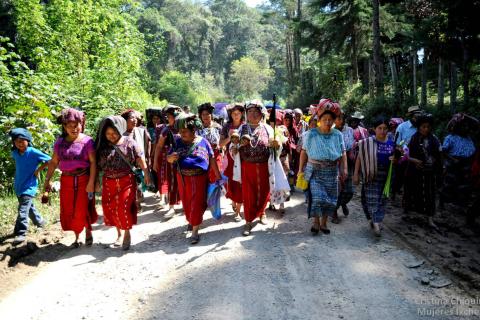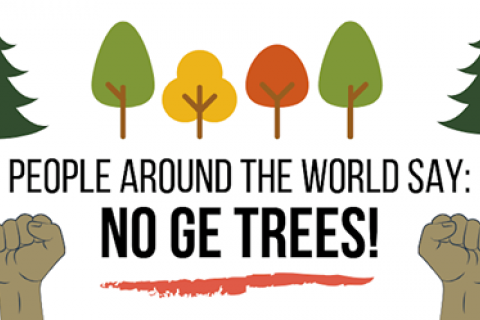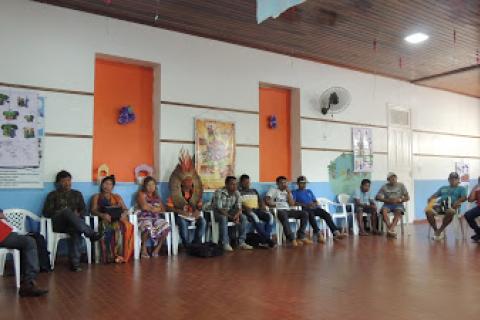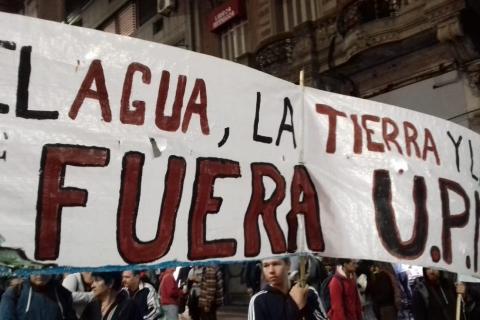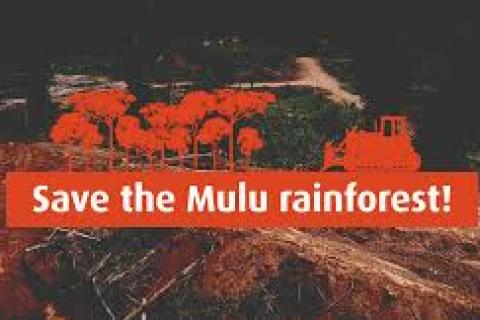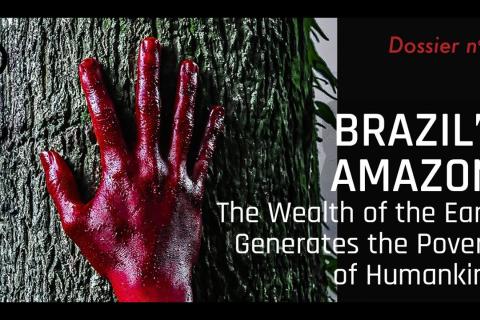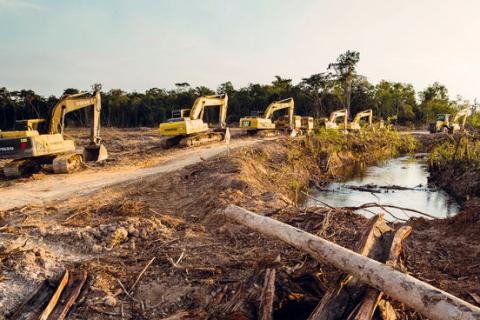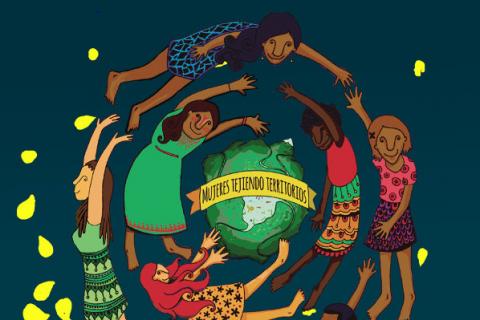Despite the many profound damages that industries cause in the world’s forests, they also cause something else to emerge: the strong and diverse resistance movements of affected communities defending their territories, livelihoods, cultures and even their existence.
Other information
The bulletin "Voices From The Ground: Communities In Movement And Resistance Strategies", N° 241, is available in Swahili.
The global Campaign to STOP Genetically Engineered Trees is in Raleigh, NC during the 2019 Tree Biotechnology Conference of the International Union of Forest Research Organizations (IUFRO).
Oil giants Eni and Shell have both recently announced plans to use trees to offset some of their ever increasing carbon emissions. On May 13th, NGOs put out a statement opposing the oil industry’s attempts to avoid its responsibility for climate breakdown.
Chiefs and leaders of indigenous peoples in Acre published a letter addressed to the governments of Germany and California, reporting that millionaire funds are coming to the state of Acre for REDD and PES payments, without transparency and benefiting few indigenous people.
Finnish company, UPM, plans to install its second pulp mill in Uruguay—which would be one of the largest in the world and produce over two million tons of pulp per year. The project requires a new railway route and a port terminal for the company, as well as the expansion of high voltage electrical distribution lines and several processing plants in a duty-free zone.
An area of 4.400 hectares of the Mulu rainforest is currently being converted into palm oil monocultures; an area directly adjacent to a UNESCO World Heritage Site, the Mulu National Park. The affected indigenous Berawan and Penan communities were not consulted and oppose the project that will destroy their forest and livelihoods. The Bruno Manser Fonds (BMF) is calling for a moratorium on new oil palm plantations and for an immediate halt to logging in the Mulu National Park region. Please sign the petition now!
As the largest rainforest in the world, the area most rich in minerals and the main biogenetic reserve of the planet, the Amazon is one of the most desirable territories for global capital.
A short documentary by Oxfam Peru shows the serious environmental and social problems that come with the expansion of monoculture tree plantations in the Peruvian Amazon. Thousands of hectares have been deforested—mainly with the cultivation of oil palm—which, in addition to affecting forests and streams, affect several native communities.
The most recent monthly bulletin of the Latin American Network of Women Defenders of social and environmental rights brings together several articles from the region that highlight the violence that the extractive model and climate change exert on women. You can read their bulletins (in Spanish) here.
Indigenous Papuans are seeing their forest being destroyed to be replaced by monoculture plantations. An interview by Mongabay news to anthropologist Sophie Chao evidenced the complex tensions between communities and the monoculture that is being imposed upon them.
